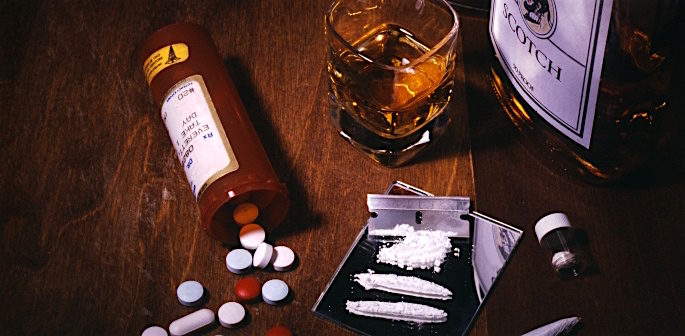the addict is seen as a disgrace and not talked about to anyone
Alcohol and drug abuse, no matter who it affects, will cause a great deal of heartache and pain. This comes as no surprise but most families are ill-prepared for how long the suffering can last.
Even after an addict has conquered the addiction, the after-effects continue to haunt and bring misery. A lack of understanding of living with alcohol and drug abuse in Desi households is part of the problem.
The challenges it brings and how it has an impact on the whole family makes it difficult for some British Asian households from South Asian communities to deal with.
Alcohol abuse tends to get brushed under the carpet because drinking is not seen as a problem. Hence, the abuse that goes alongside is generally overlooked.
Drug abuse, on the other hand, is far more of a taboo topic and no-one will readily admit that anyone in their household has a drug problem.
It is shameful and disreputable so people hide it away like a dark secret in a dark closet where no-one wishes to venture. Rather than try and seek help, the addict is seen as a disgrace.
Sadly, even in India, and especially, Punjab, the drug problem is very much out of control among both men and women.
Parents, partners, and siblings are all affected by the waste and upheaval caused by drug abuse and it is heartbreaking to see what some have gone through.
This is the overall picture that comes across when talking to Desi households about drug abuse.
Alcohol and drug abuse in Desi households continues to rise and paints an extremely worrying picture.
Living with alcohol and drug abuse in Desi households is problematic because, sadly, it remains very secretive. We take a look at the drug and alcohol problem in the UK within Desi households.
The Drug Problem in the UK
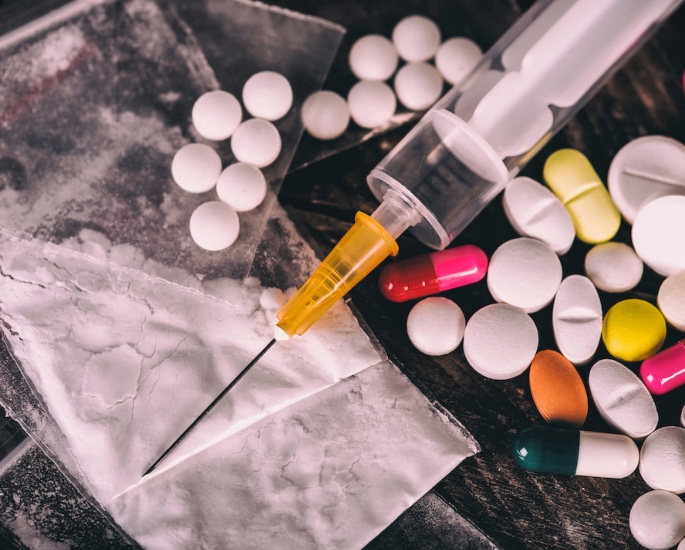
Alcohol, or sharab as it is commonly known within Desi households, is glorified in films. It is not unusual to see Bollywood stars and heroes of Punjabi movies merrily singing songs about how great alcohol is.
It is stigma-free and, as a result, this has fortified the false myth that it is acceptable and fun. Of course, it is acceptable and fun in the right circumstances but, out of context, it is lethal.
Consequently, we have seen the endorsement of alcohol grow within Desi households. People question an Indian man’s masculinity and he is the subject of ridicule if he refuses a drink.
The ignorance in not acknowledging the damage that alcohol can do is disturbing and, at the same time, senseless. It is only when it is too late to do anything about it, that it is seen as a problem.
Drug taking, on the other hand, is a whole different ball game. It is not approved or accepted and is generally frowned upon. Max Daly is co-author of Narcomania: How Britain Got Hooked on Drugs (2013).
His article entitled, ‘Cultural Shifts’, speaks to those directly involved in tackling some of the issues surrounding drug abuse.
Sohan Sahota is the founder of the Nottingham-based drug treatment charity Bac-In.
This project was set up in 2003 to help dependent drug users from BME (Black and Ethnic Minority) backgrounds and Mr Sahota says:
“With Asians in particular, there seems to be a stronger denial about problems related to drug abuse”.
He continues to add that this might be due to:
“a deep sense of pride, social stigma and cultural shame leading the users into isolation and community ostracism, making it difficult for them to seek help”.
In the same article, Mohammed Ashfaq talks about the change in the profile of Asian drug users. He is the managing director of KKIT Pathways to Recover which is based in Sparkhill, Birmingham.
This area of Birmingham has a large Pakistani population and the use of heroin, he says, is not as prevalent any more but has been overtaken by other drugs.
Mr Ashfaq claims that:
“Cocaine use is shooting up among middle and upper-class Asians. There are more young men and women in colleges and universities taking legal highs and cannabis”.
According to him:
“Cocaine is seen as more socially acceptable than heroin. They use drugs because of peer pressure. It is seen by some people as being cool, a sign of being upwardly mobile”.
We see Bollywood mentioned again as Mr Ashfaq thinks that:
“…the culture of Bollywood promotes cocaine use, as a confidence booster and dietary aid. It’s not said directly, it’s subtle”.
A further report was published by the UK Drug Policy Commission in 2010. It was entitled ‘Drugs and Diversity: Ethnic Minority Groups’ and mirrored the description given by Mr Sahota.
It said:
“Drug problems within Asian communities were almost certainly underestimated because of high levels of stigma attached to drug use…this meant that the problem often remained a hidden one”.
DESIblitz talks to one family affected by the alcohol and drug abuse problem. We have not used real names in order to protect identities.
The Mother
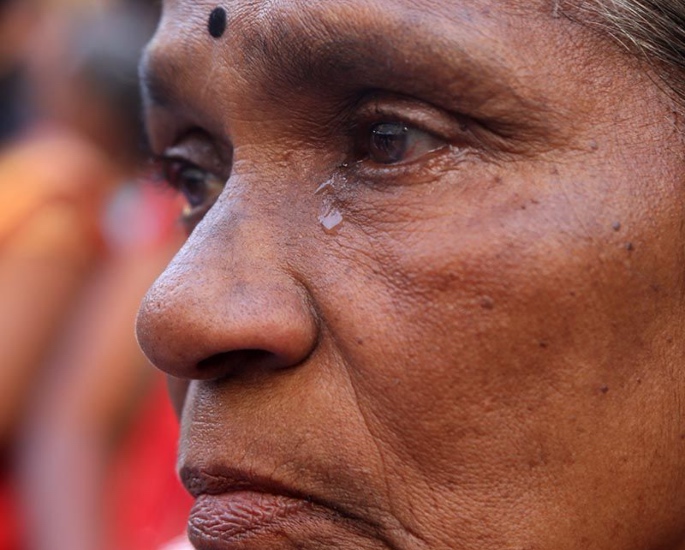
“Who am I? Why am I here? I don’t deserve to live. Everyone hates me and I hate myself. I wish I could just die. Why was I even born?”
These words are real words spoken repeatedly by a young man in moments of despair and desperation.
These are the texts that a mother received from a son. All she could do was cry, knowing that her pleas would never penetrate the mind of a drug addict.
Her son was addicted to cannabis, more commonly known as weed. Weed, say young people, is a recreational drug and will not have any lasting effects.
Talk to his mother and she will tell you a different story. She tells us in her own words:
“My son was seventeen when he started smoking weed. I didn’t know it at the time as he only used it outside of the home.
“I had my own problems to deal with and two younger children who needed my attention. That’s not to say I overlooked him.
“I didn’t. I just failed to notice the problem. Without going into too much detail, it suffices to say that the addiction to weed had life-changing consequences for my son.
“Those people who say that is is harmless need to think again. Weed has long-lasting effects on the brain and causes depression, anxiety, mental illness and suicidal thoughts.”
This story is incredibly sad but not rare. So many families go through the same pain but are afraid to seek help.
This mother has spoken up and continues to say:
“I would cry myself to sleep every night after reading the texts I was being sent. I never showed these to anyone and will carry them to the grave.”
There was nowhere to turn, she says. Her husband was self-obsessed and had no interest in the children or her.
He went out drinking and stayed out most nights. He led a ‘colourful’ life visiting ‘ladies of disrepute’.
She talks about her husband with bitterness:
“He was an idiot. He walked out on us when his son’s drug problem got too much. So I was alone and couldn’t tell my parents or anyone else about the drugs.
“I couldn’t bear the shame of knowing they would talk about us. Of course, I was there for my son; I am his mum.
“He literally was a total and utter mess. No confidence and no self-belief. All he wanted to do was die. It took all my strength and power to keep him alive.
“As the years went by, he tried to attend drug abuse clinics but would forget to go. He is my son and I love him unconditionally and this has strengthened our bond. He is now in his early thirties and things are looking up.”
She smiles and looks happier as she says:
“I will let him tell you his story in his own words”.
The Son
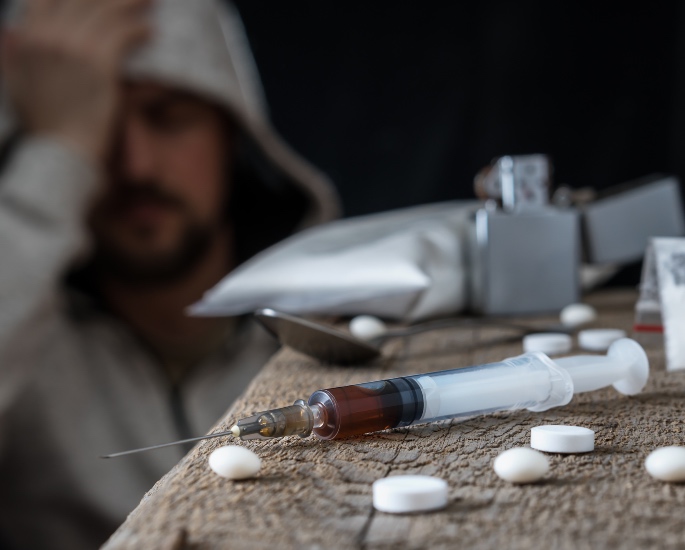
We appreciate that it cannot be easy to talk about something that has single-handedly been the cause of so much suffering in your life.
This person is a thirty-two-year-old young man. He does not want to reveal his true identity so he agreed we use a pseudonym.
For the purpose of this article, his name is Sonny. He begins his story:
“I had nothing in my life. No money, no job, and no prospects. Worse than that, however, I had no desire to carry on.
“Where shall I go? How can I get my next fix? How can I pay for it?
It was impossible to focus on anything else. I felt abandoned and I was terrified.
“I used to think of ways that I could kill myself and when I was at my lowest, the only way out was suicide.”
“All my savings had disappeared and I was begging for money from family. When they refused it, I would steal it.
“No-one can understand what it is like unless they have been there. I only left my room to buy more weed. Other than that, I couldn’t face anything or anyone”.
Sonny explains that the long-term use of cannabis was making him hallucinate. He also suffered from a serious case of schizophrenia.
This condition is common in cannabis users and affects the way they think, feel and act. According to the Different Brains website:
“Someone with schizophrenia may have difficulty distinguishing between what is real and what is imaginary.
They “may be unresponsive or withdrawn and may have difficulty expressing normal emotions in social situations.”
Sonny continues to say:
“I knew all this. I knew that it was the drugs but I couldn’t stop. Nothing mattered to me; not myself or my family. It was only my mum who I shared my darkest thoughts with.
“I know I burdened her but she was the only one who didn’t judge me. I’m not exaggerating when I say my life was shit.
“I have a younger brother and a younger sister. They have their own lives and are doing well. ‘I want them to stay away from what I am doing’ – these were my thoughts.
“I was stupid and mixed with the wrong crowds. The involvement makes it so hard to leave and everyone did it – got high.
“At first it was for a bit of fun but the fun soon becomes a habit and I was hooked. I dabbled in cocaine too but, thank god I was able to walk away from that”.
Sonny no longer takes any form of drug and has incredibly transformed his life. He tells us affectionately:
“It was mum who got me through this. I owe her so much. My relationship with mum is so special and nothing can take that away from us”.
This is the hopeful story of one family who was able to conquer alcohol and drug abuse.
The Drug
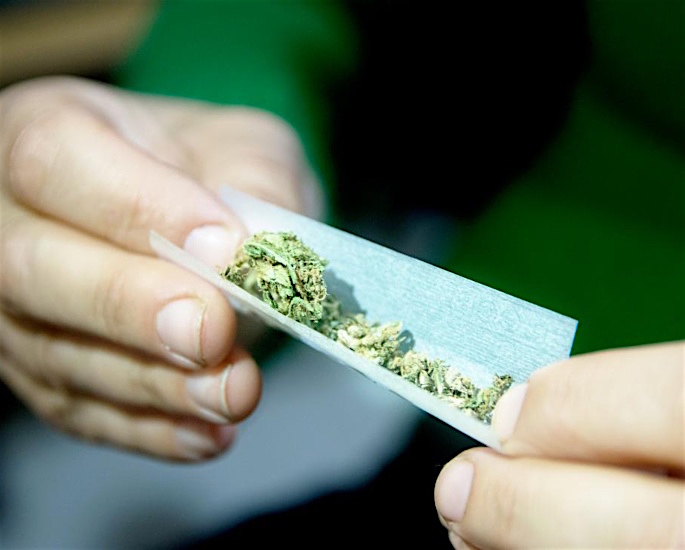
There are many conflicting views about the effects of cannabis on mental illness. Those who have experienced it first-hand will have a different story to tell than those who are outsiders.
Watching a loved one waste away and retreat into their shell is a heavy burden especially as society is so judgemental.
The National Institution on Drug Abuse published a report which looks at the link between marijuana and psychiatric disorders.
The report suggests that ‘smoking high-potency marijuana every day could increase the chances of developing psychosis by nearly five times compared to people who have never used marijuana’.
However, further research, ‘after adjusting for various confounding factors’, found, ‘no association between marijuana use and mood and anxiety disorders’.
More recent research found that ‘people who use marijuana and carry a specific variant of the AKT1 gene are more at risk of developing psychosis.
The use of cannabis is also associated with ‘an amotivational syndrome, defined as a diminished or absent drive to engage in typically rewarding activities’.
The Rethink Mental Illness website gives advice and information about different types of substances that could have an impact on a person’s mental health.
It says about cocaine that it is ‘addictive and over time you are more likely to have ongoing problems with depression, paranoia or anxiety’.
Heroin is another drug which is highly addictive and will have serious long-term effects. Trying to give it up is likely to result in feelings of depression and insomnia.
The report says that mental health disorder patients are responsible for the consumption of:
- 38 per cent of alcohol
- 44 per cent of cocaine
- 40 per cent of cigarettes
Certain drugs say this website:
“can create problems that trigger mental health symptoms.
“In other cases, substances can create mental health symptoms like paranoia, delusions or depression while the person is under the influence of the drug.
“When these symptoms last after the drug wears off, then it can indicate a co-occurring mental health disorder”.
The research into the link between drugs and mental illness is certainly not exhaustive. Some drugs are more harmful and addictive than others.
Nevertheless, whatever substance a person takes – long-term – the effects will also be long-lasting and damaging.
We can include the consumption of alcohol in this category too as it is an addictive substance. The addiction to alcohol has seen the break-up of many families and will continue to do so.
As Sohan Sahota says, South Asians and their families still struggle to admit to drug problems within their homes.
Getting Help
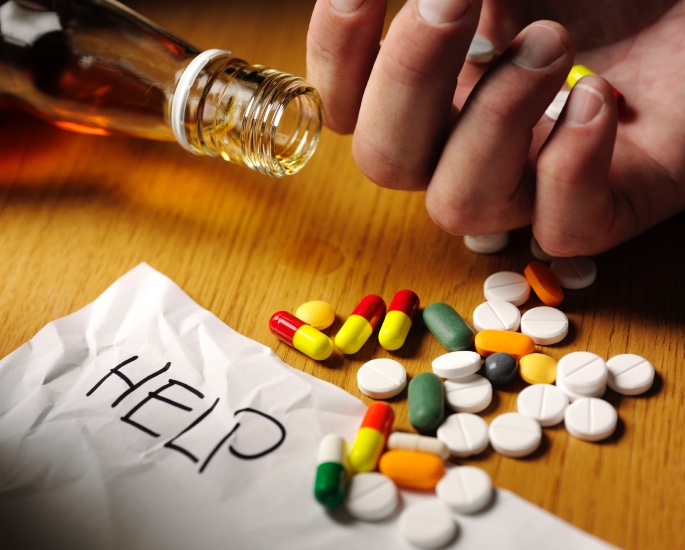
It is not a sign of weakness to admit that you need help. Neither is it shameful or something that needs to cause embarrassment.
Living with alcohol and drug abuse in Desi households, as we have already seen, is tough. It is tough on the addicted and those that surround them.
Society can be so judgemental and will never understand unless they have walked in the shoes of those who suffer.
However, there is so much help available if willingness and desire are strong enough. The road to recovery from drug and alcohol abuse is not an easy one but it is achievable.
Do not suffer in silence; reach out and talk to someone. Remember, a problem shared is a problem halved but taking that first step will be the hardest.
There are many websites which offer valuable support and guidance. The NHS website has a section specifically dedicated to getting help with drug addiction.
The website called FRANK gives details of local and national services that provide counselling and treatment for alcohol and drug abuse.
Your own GP will also be able to give information regarding support sources. Talking to your GP could be particularly useful if a referral to a clinic is needed.
The Samaritans offer a service which is confidential. You can talk to a volunteer without revealing your identity and they will simply listen.
Within this article is a list of websites and services which are helpful in seeking support whilst living with alcohol and drug abuse.
Just know that you are never alone, there is always someone who will listen. Find that someone and take that first step on the road to recovery.
Help with Alcohol and Drug Abuse
NHS: https://www.nhs.uk/live-well/healthy-body/drug-addiction-getting-help/
FRANK: https://www.talktofrank.com
Drug Addicts Anonymous: https://www.drugaddictsanonymous.org.uk/
Turning Point: Drug and Alcohol Support: https://www.turning-point.co.uk
Alcoholics Anonymous: https://www.alcoholics-anonymous.org.uk
DirectLine is a 24/7 confidential alcohol and drug counselling and referral service. Call DirectLine 1800 888 236




















































